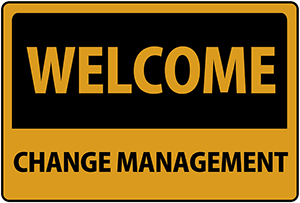A Midwest manufacturer of customized engine parts used in the automotive industry was presenting at a seminar several years ago. The company representative explained how, in order to enter the Asian markets, they decided the best approach was to acquire an existing manufacturer in China with similar product offerings and manufacturing capabilities to their own. The company was not looking to import these products back to the US, they simply wanted to serve the Chinese and other Asian markets via the acquisition. During the networking reception, I asked the speaker how the company had come to the realization that entering China was worthwhile in the first place. His answer was that their company’s mission was to be the foremost supplier of these parts, world-wide, and that entering Asia via an acquisition was necessary to accomplish their mission.
At an ExporTech session last year, the presenter, an international lawyer, explained how manufacturers with a “non-exportable” product can, in fact, export their brand, technology and/or designs via licensing agreements. The example was a manufacturer of kitchen cabinets here in the US and who was also a client of his firm. With the exception of Ready to Assemble (RTA) cabinets which are packed flat, traditional kitchen cabinets are empty boxes which take up most of a shipping container’s volume, making them too expensive to export across oceans. His client had entered into a multi-million-dollar agreement with a Chinese company to license the company’s cabinet designs and brand in China over a five-year period. This approach generated new international revenue that would not have been possible otherwise.
These are just two examples of the many creative ways US manufacturers can generate new revenue streams from overseas customers. Thankfully, the vast majority of US exporters rely on a straight-forward network of international distributors and/or representatives to sell their products in foreign markets. However, even for companies with traditional export sales channels or that produce highly “exportable” products, most US exporters only sell into 3 or fewer international markets and seldomly have a strategic plan in place to guide them.
Time and again, foreign consumers show a preference for USA-made products and services which gives our companies an immediate advantage. In fact, US exporters often earn higher profit margins on their export sales as a result. Although higher profit margins are not always guaranteed, on the whole, exporting companies grow faster, generate more revenue, have greater productivity and receive higher valuations than non-exporters.
So what separates a highly successful exporter from the “average” exporter that, again, sells to 3 or fewer international markets and whose export revenue is, at most, 15% of the total? It comes down to the “will” of the company and its decisionmakers. The “will” to solve any problem starts with a realization that the opportunities are real and attainable. It involves defining the problem, setting the goals and outcomes; completing a SWOT analysis to understand how the company will achieve these goals; and, most importantly, to come to the realization that there are some aspects to doing business globally that are unknown to them. In fact, after working with many long-time exporters, they often remark that they, “Didn’t know what they didn’t know” even though they thought they knew everything after many years of international experience.
The good news is that a multitude of trade resources and programs are available at the state and federal level to help Wisconsin companies to achieve success in international markets. The Wisconsin SBDC Network’s Go Global Initiative was created to guide manufacturers and service providers alike, whether new-to-export or experienced, to leverage these resources. Our Export Assessment tool is available at no charge to any Wisconsin company and, for those who have the will, we will work with you to find your way to international success. Contact Chad Hoffman, International Trade Consultant at the Wisconsin SBDC Network to learn more:
